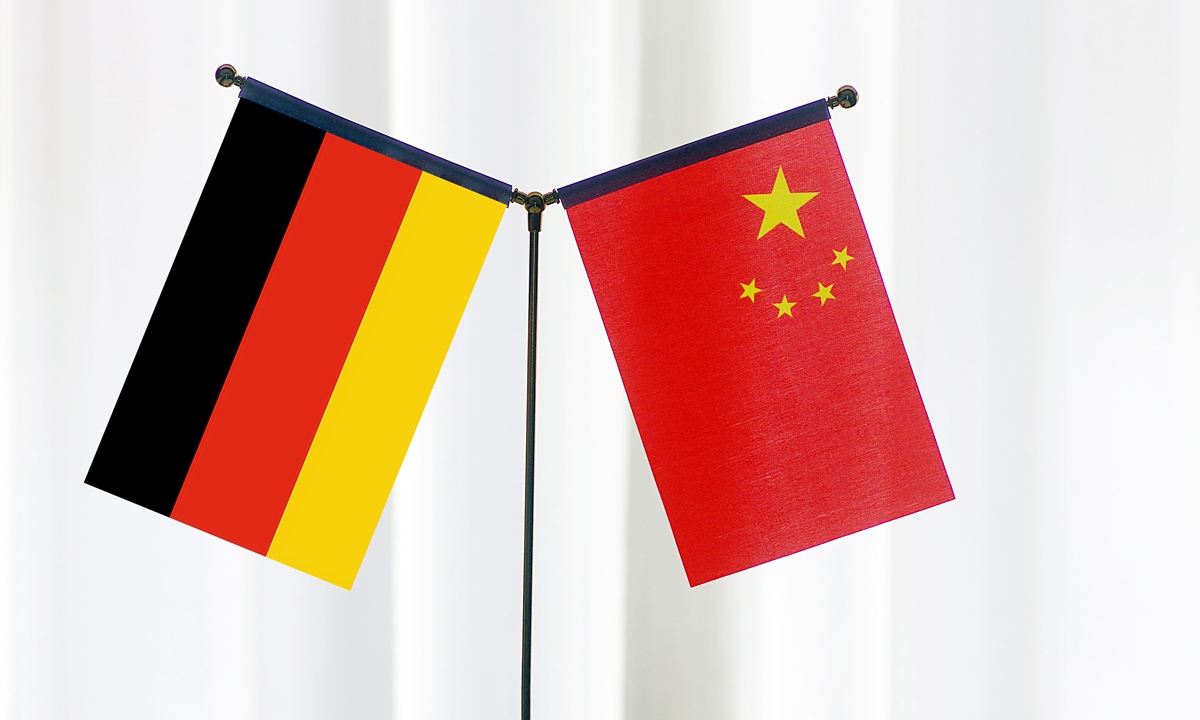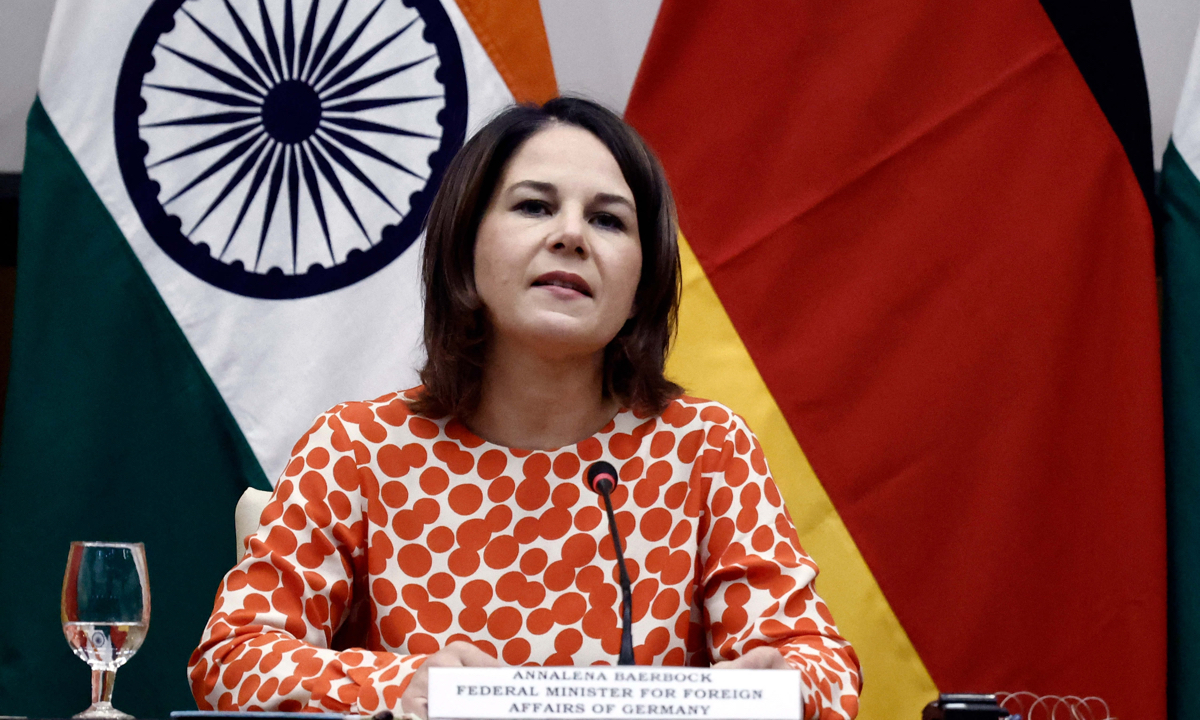German economy minister’s trip to China to ‘seek common ground’ amid rising trade frictions

China Germany Photo:VCG
Ahead of his trip to China on Friday, German Economy Minister Robert Habeck said Germany's relations with China had become more complex but China was an important partner in all fields. The visit, coming at a critical time as China and the EU are experiencing trade frictions, is seen as an opportunity for Germany to seek consensus rather than confrontation, some experts said, noting that both sides need to find common ground and address each other's concerns.
Speaking ahead of his visit to China and South Korea, Habeck said Germany did not want to separate from China but some issues should be addressed during the trip, particularly "China's support for Russia and human rights issues," Reuters reported on Wednesday.
The senior German official headed to South Korea on Wednesday as part of an East Asia trip, and will then head to China on Friday, German media outlet Deutsche Welle said.
The visit also aims to strengthen economic ties while helping to manage the fallout from the EU's threat to impose steep tariffs on Chinese cars, which has raised fears of a trade war, according to media reports.
The European Commission announced on June 12 that it will impose an additional provisional duty of between 17.4 percent and 38.1 percent on electric vehicles (EVs) from China from early July.
"Habeck's visit to China comes at a time of complex international circumstances, particularly with the significant impact of the Russia-Ukraine conflict on the German economy. Stabilizing China-Germany relations is in the interests of both parties, especially Germany," Jiang Feng, a research fellow at the Shanghai International Studies University, told the Global Times on Thursday.
This visit coincides with the EU's imposition of tariffs on Chinese EVs, a measure opposed by both the German automotive industry and the German government, as it directly affects German car exports, Jiang noted. "Thus, the immediate priority of this visit is to avoid a trade war between China and the EU over automotive tariffs."
The EU's tariff decision has drawn stern criticism from the German business community in China, with the German Chamber of Commerce saying that such tariffs could affect the global automotive industry, and calling for negotiations.
In addition to addressing China-Germany bilateral economic and trade issues, Habeck is also making the trip out of his own political considerations, both as the leader of the Green Party and as the minister of economy, Cui Hongjian, a professor from the Academy of Regional and Global Governance with Beijing Foreign Studies University, told the Global Times on Thursday.
"Therefore, he is tasked to implement Germany's China strategy, particularly the one led by his ministry," Cui noted.
From the Chinese perspective, given the current economic and trade frictions between China and the EU and Germany's unique and significant role, there is undoubtedly a desire for more dialogue with Habeck in these areas, Cui said. "However, his prior remarks suggest he intends to avoid discussing topics related to EVs and trade frictions, which may lead to some friction during the dialogue."
Habeck will address trade relations while also pressing China on issues such as Russia's war in Ukraine, Reuters said.
"Both sides need to find common ground and address each other's concerns," Cui added.
Habeck's visit also comes at a delicate time for the German government and the Green party, as the recent European Parliament elections have been a significant setback for the Green parties across Europe, including Germany, where their support has waned.
Some experts also noted that there is interest in whether this visit can help Habeck, as the Green party leader, to adopt a more objective and pragmatic stance. However, his additional agenda of human rights and China-Russia relations contrasts with the Chinese expectation that an economic minister should primarily discuss economic issues, experts said.
"From his perspective, these topics must be discussed to satisfy the Green party and the German government, particularly given his competitive relationship with German foreign minister Annalena Baerbock, as neither wants to appear weak on China policy. Thus, he is compelled to address issues beyond economics," Cui said.
Experts also believed that while Habeck faces a daunting task in potentially intense negotiations with China, there are still common interests between China and Germany.
"If Germany can resolve potential trade conflicts between China and the EU without confrontation, it could provide a new model for global economic order and governance, especially at a time when Europe is facing multiple conflicts," Jiang said.
Germany's adoption of a non-confrontational approach would demonstrate its strategic contribution, reinforcing its status as a major power within the EU and its influence in the global economy, the expert noted.



